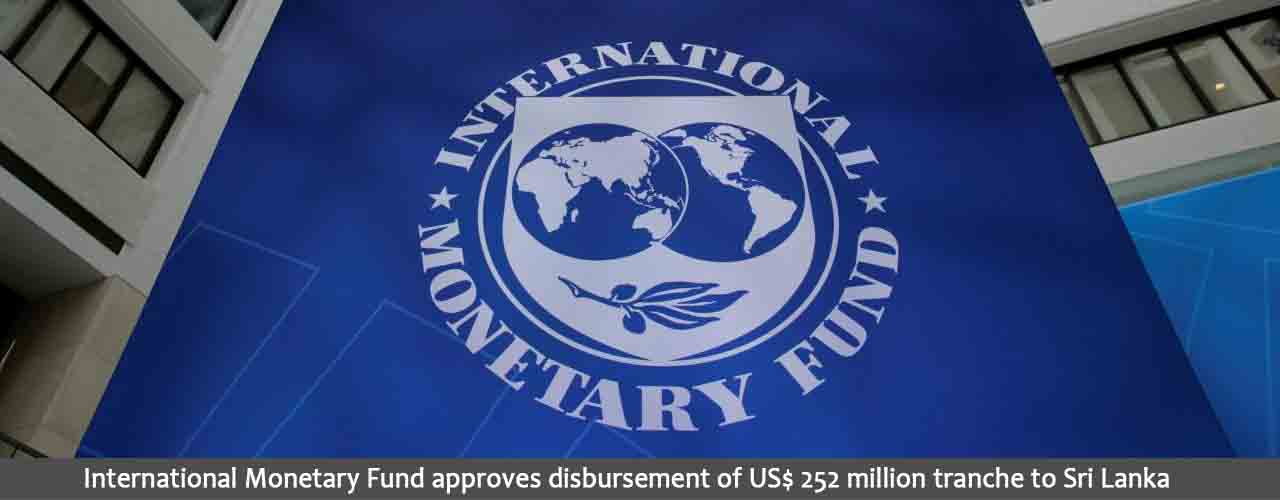International Monetary Fund approves disbursement of US$ 252 million tranche to Sri Lanka
The International Monetary Fund (IMF) earlier this week approved the disbursement of a US$ 252 million tranche to Sri Lanka under its programme in the country and has called on the government for continued reforms to boost growth as the country recovers from a balance of payments crisis.
The IMF has stated that Sri Lanka was making gains in improving state finances and monetary policy, and structural reforms would boost growth.
“Sustaining the reform momentum is critical to strengthen the country’s resilience to shocks, given the still sizable public debt and low external buffers, and to set the foundation for strong and inclusive growth,” IMF’s Deputy Managing Director Mitsuhiro Furusawa has said in a statement.
“Further progress with revenue-based fiscal consolidation, supported by the new Inland Revenue Act, is needed to help safeguard important social and infrastructure spending, including in response to natural disasters.”
The IMF’s board has completed the fourth review under a US$ 1.5 billion (US$1.1 billion Special Drawing Rights) Extended Fund Facility (EFF) arrangement. With the latest tranche of US$ 1.014 million (715.23 million SDR) had been disbursed.
Sri Lanka’s economic growth has fallen to 3.1 percent in 2017, amid a drought and foreign reserve collections after a the central bank generated a balance of payments crisis in 2015 by printing money to resist an interest rate rise amid strong private credit recovery coupled with a widening budget deficit.
The economy was also hit by a drought which had since ended.
According to reports, analysts have said it is normal for growth to slow after an inflation bout from a currency collapse when people and companies comes to terms with higher price structure with trade goods up and real salaries depleted.
Sri Lanka has been devising rules on deficit spending which would help keep the economy stable in the long term.
The IMF has noted that a “robust fiscal rule” and better management of debt will also help the country.
The IMF in its statement has praised the starting of a fuel pricing formula which had been a trigger of economic instability in the past where money was printed to keep fuel prices low, triggering balance of payments trouble.
“The recent approval of an automatic fuel pricing formula is a major achievement towards reducing fiscal risks from state-owned enterprises (SOEs),” Furusawa has said.
“In this regard, it is essential for the authorities to implement an automatic pricing formula for electricity and a restructuring plan for Sri Lankan Airlines, as well as further strengthening SOE governance and transparency.
“The impact of the reforms on the vulnerable can be mitigated by ongoing efforts to strengthen social safety nets.
“The Central Bank of Sri Lanka should continue to manage monetary policy prudently, in the face of price shocks and market volatility.”
OSL take:
The further budgetary support extended by the IMF would add to the strengthening of Sri Lanka’s economy. The IMF in its latest review has noted that Sri Lanka is on the right path on the economic reforms agenda and it would therefore propel the economy to record a continuous growth rate. The observations of the IMF would add to the confidence of foreign businesses/investors to engage in business/investment ventures in Sri Lanka.
| Article Code : | VBS/AT/20180608/Z_2 |

